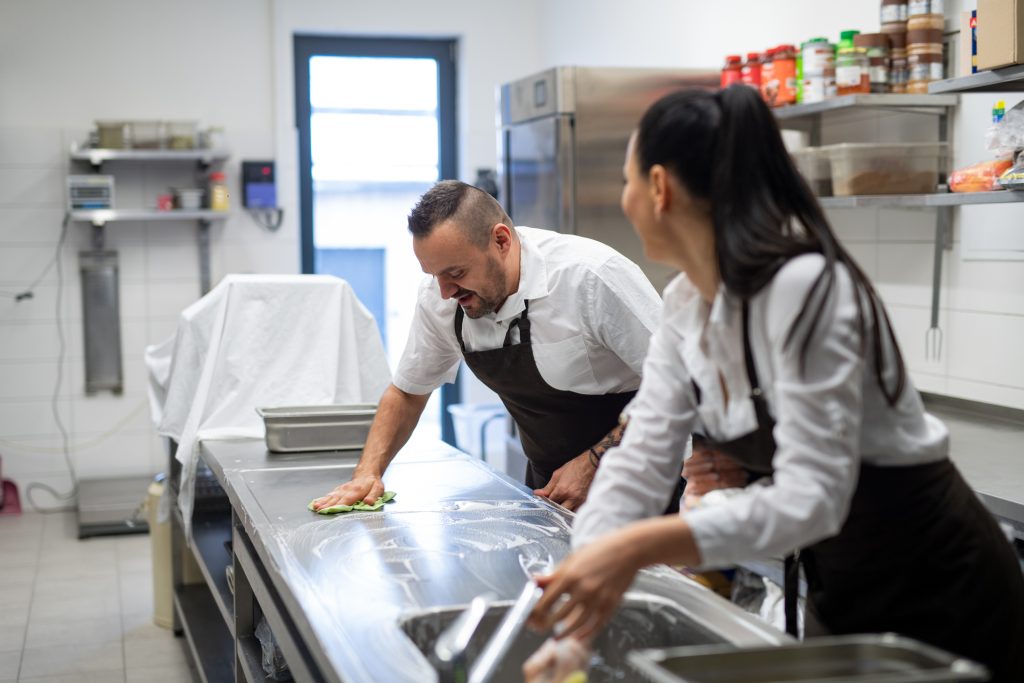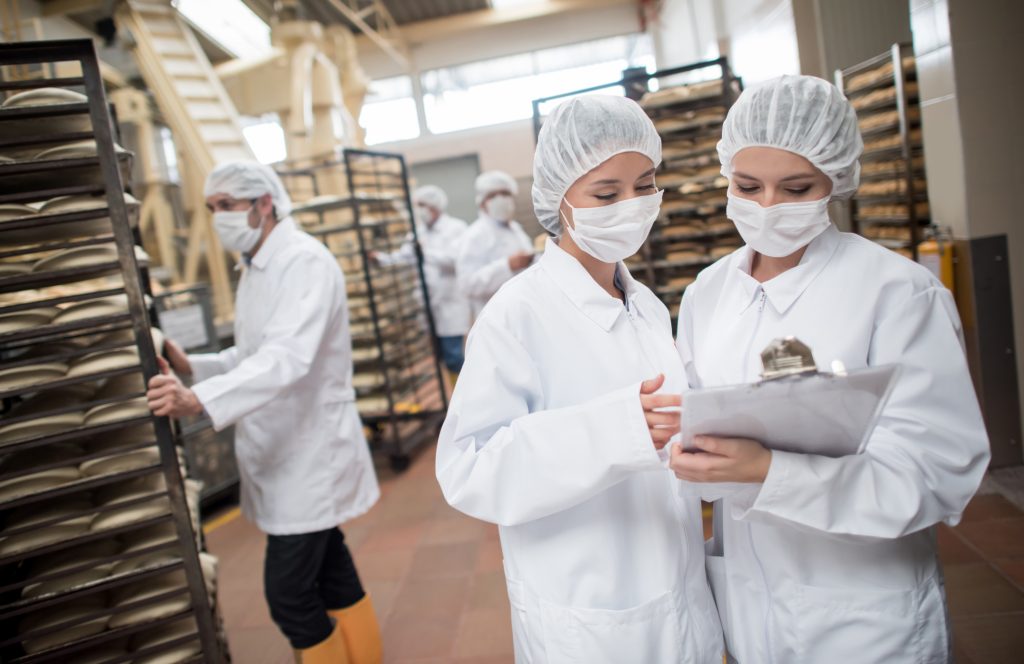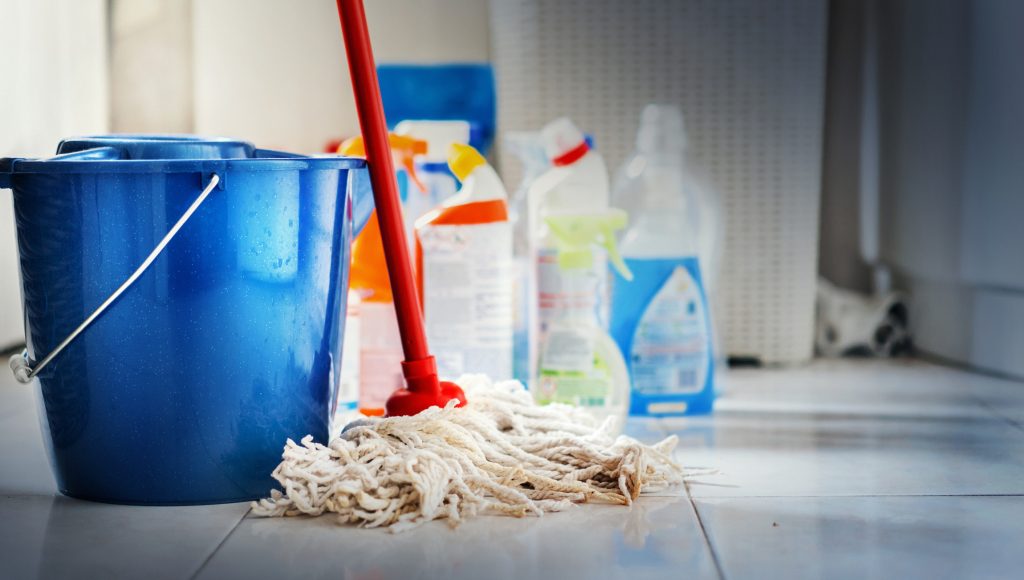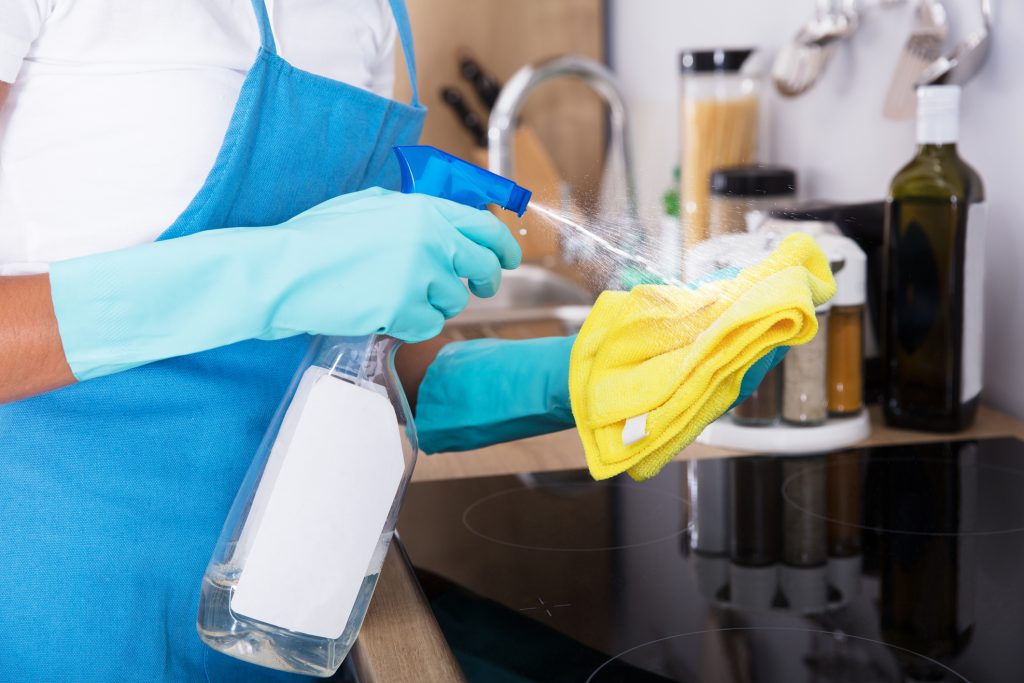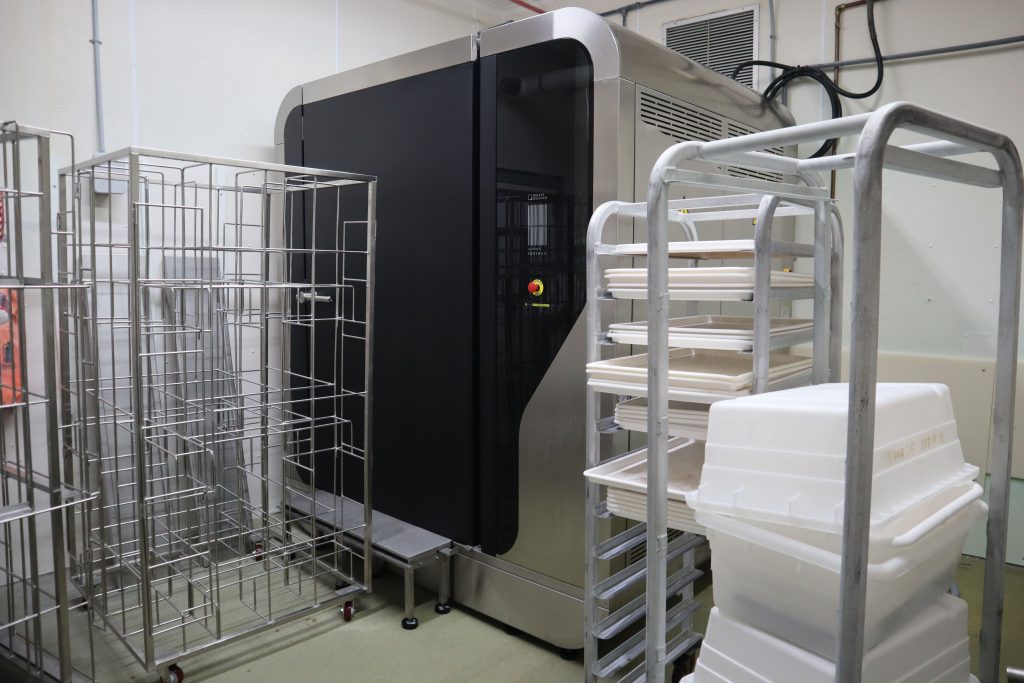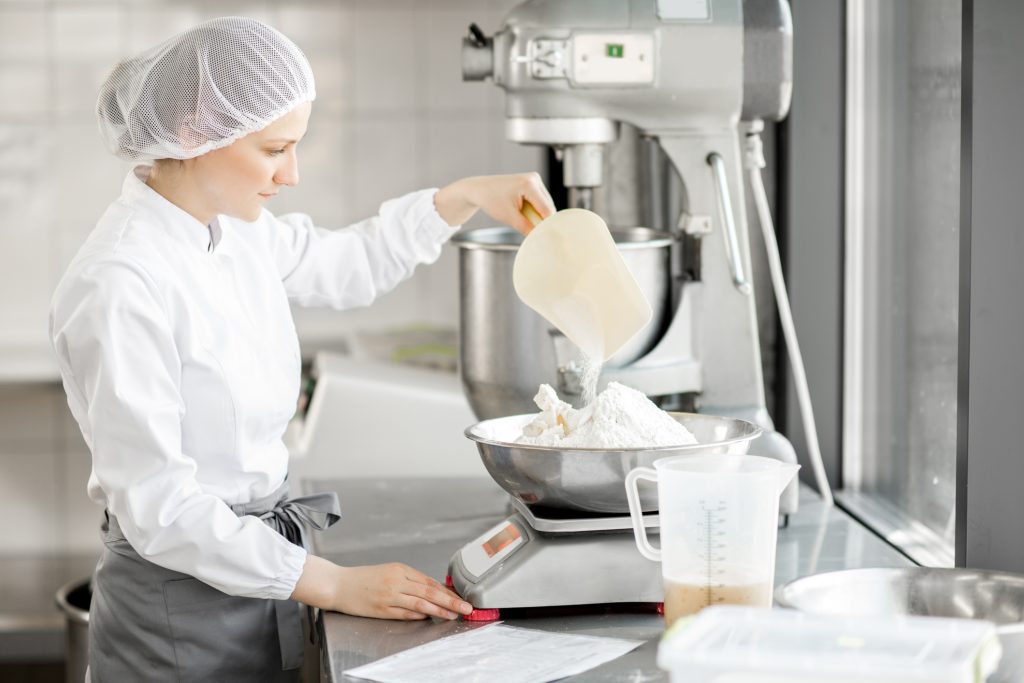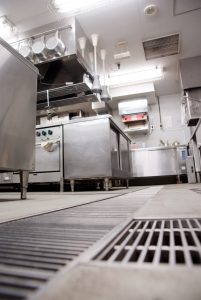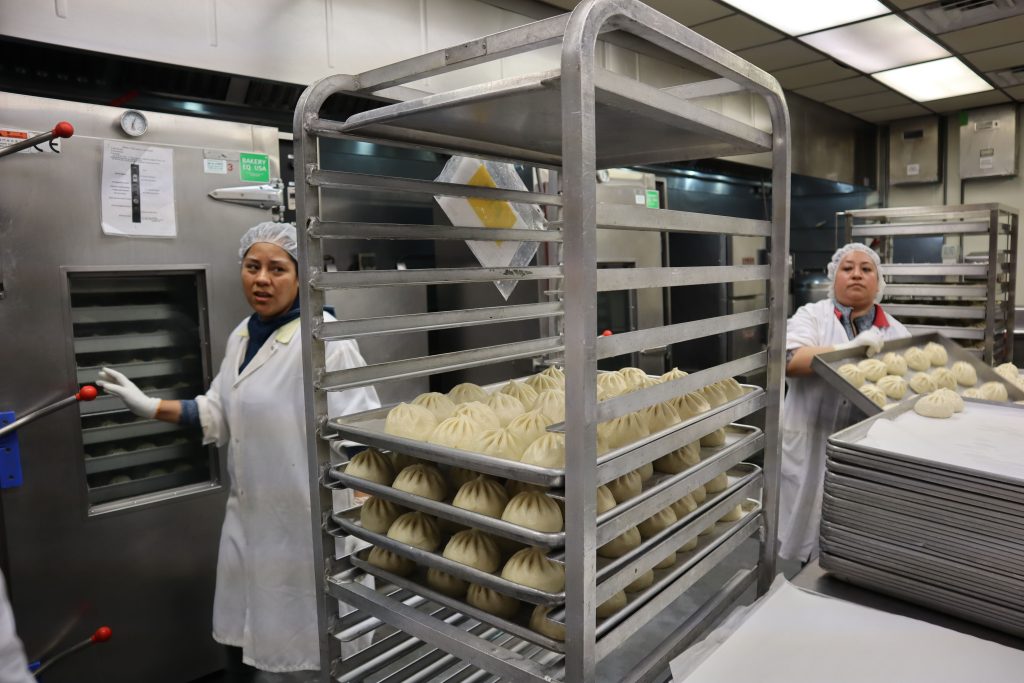When you’re running a very busy commercial kitchen or food production premises, it’s vital to keep on top of cleaning and sanitation. This is important because it will help streamline your working operations, ensure the efficient and productive running of your business, and ultimately ensure its success. It’s also vital for meeting the stringent food safety standards that we follow here in the US.
If staff have to keep stopping to clean food production equipment or wait for equipment to be properly cleaned and sanitized before they can carry on using it, it will not do you or your business any favours at all!
The key to keeping your food production premises clean is consistency. Some messes need to be taken care of as soon as they happen, such as spills or spaces where raw food is prepared and cooked, some can be cleaned daily at the close of business, and others as needed; however, your staff need to have a plan and know exactly what needs to be cleaned and when.
Using effective cleaning products can ensure your commercial kitchen is germ free after it is cleaned, but just as important, is using germ-resistant surfaces at all times, and sanitized cleaning utensils.
Your commercial kitchen is the hub of your business. Whether you run a coffee shop, a five star gourmet restaurant, a bakery or a meat production factory, keeping your premises spick and span is the key to helping it run smoothly and profitably. Read on as we uncover our top tips for keeping your commercial kitchen clean and how Schaumburg Specialties’ high performance food production equipment can transform the efficiency and productivity at the heart of your business…
1. Ongoing Cleaning & Maintenance
As previously mentioned, the key to keeping on top of cleaning in your commercial kitchen is ongoing cleaning and maintenance. Being consistent in your approach to cleaning is the best way to prevent any corrosion or rust build up on your food production equipment or letting dirt and germs get out of control.
Clean your racks daily with a detergent or heavy duty oven cleaner or you could also try using an acetic acid/water or white vinegar/water solution to remove any rust deposits. Any major spillages that occur where raw food is cooked or prepared should of course be cleaned up and the area sanitized immediately, in keeping with food safety standards. Using a rack washer, such as the Somengil multiwasher, however, is the most effective and efficient way to properly and consistently clean and sanitize a pan rack.
Making sure your food production equipment is properly maintained is also crucial to running an efficient and productive premises. Often, cheap pan and oven racks will start to tip and crack after heavy use, and the casters that keep them mobile will start to wear down, which is a problem for the smooth running of your production line and your employees’ safety. It is therefore vital to have quality equipment.
Our SHOPCraft range, for example, is specially manufactured with productivity, reputation management, ultimate hygiene, and food & safety regulations in mind. Our racks and casters are designed to perform and built to endure – that’s why they also come with a lifetime guarantee, meaning you won’t have to worry about paying for expensive repairs and replacements later down the line. Read more about our SHOPCraft range later on in this blog.
2. Use a Checklist
Using a checklist makes it clear what cleaning and sanitation has been completed and what needs to be done, helping all staff stay on the same page. Be sure to post your checklist in an obvious spot and that it can easily be read without flipping pages (which isn’t easy when you’re wearing gloves!).
If you have several employees who are responsible for conducting the cleaning, make the checklist dry erase and attach a marker so staff can initial once tasks are complete. This is particularly useful if you have several shifts that are responsible for different tasks.
3. Keep Cleaning Utensils Clean
This is an essential requirement that is often and easily overlooked. But if you wipe down a counter using bleach spray and a dirty towel or sponge, you’ll be leaving behind more bacteria than you cleaned up!
Mops should be cleaned and allowed to air dry overnight; never leave mops in dirty water in mop buckets. Mop buckets should always be emptied, cleaned, and allowed to dry completely (which may mean drying them upside down).
Standing water is already a breeding ground for bacteria, viruses, and insects. Rodents also seek out standing water. Puddles near floor drains and mop buckets are ideal places for feeding, especially if the mop water is dirty from cleaning up a food spill!
Whenever possible, disposable (and recyclable) cleaning utensils should be used over reusable ones. For instance, paper towels are preferable to towels and wipes are preferred to reusable sponges. If you’ve chosen to be environmentally conscious or fiscally responsible and use reusable cleaning utensils, make sure that they are durable and cleaned regularly. Detachable mop heads and sponges can easily be washed.
4. Use Cleaning Products Correctly
Be sure to read cleaning product labels to make sure they’re being used correctly. For instance, some cleaning products may make your stainless steel or aluminum kitchen racks shine like new but offer no disinfecting qualities.
Bleach products should be air dried for maximum effectiveness. Most 1:10 bleach products (including disposable bleach wipes) say on the container that they require a two minute exposure time and should air dry before the surface is used again. So, if you use a clean sponge and bleach to clean a counter and immediately dry it off with a paper towel, you won’t have actually sanitized the counter at all!
Also be careful not to mix incompatible cleaning products as it can cause unsafe conditions — never mix ammonia and bleach, the combination causes lethal fumes.
5. Use Germ Resistant Materials
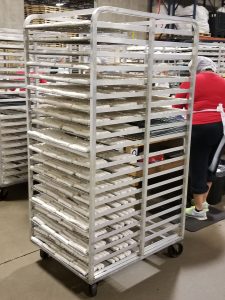 To help reduce the spread of germs and pathogens in your commercial kitchen, start out using bacteria resistant materials to begin with.
To help reduce the spread of germs and pathogens in your commercial kitchen, start out using bacteria resistant materials to begin with.
- Wood countertops and cutting surfaces, while classically beautiful, also soak up juices from food. This is particularly dangerous when handling raw meats. Marble or steel countertops are much more ideal as they’re not porous and don’t absorb liquid or harbor bacteria.
- Use aluminum or stainless steel kitchen racks, such as from our SHOPCraft range, so that if food is spilled, it will not soak in and it can be easily cleaned.
- Opt for stainless steel mixing bowls and cooking utensils over plastic or rubber that can readily break down or be compromised with regular scraping, cutting, and cleaning.
6. Invest In A Multiwasher
Keeping your commercial kitchen clean and sanitized can be a very time consuming process and can quickly seem overwhelming when your production line is in full swing.
Investing in a multiwasher is a really effective way to keep on top of kitchen sanitation and maintenance. A powerfully efficient washer such as the Somengil multiwasher, available through Schaumburg Specialties, provides unbeatable cleanliness and sanitation and can perform 40-50 cycles per shift, helping to streamline your working processes and freeing you and your workers up for other essential tasks.
Your racks and food production equipment will not only be super clean, they’ll also flash dry instantly when they’re taken out of the hot washer into room temperature – meaning they’re ready for immediate action on your production line!
Read more about how the Somengil multiwasher works and how it transformed the efficiency and productivity of one leading meat retailer’s factory.
7. Keep Staff Compliant
As required by federal law, kitchen staff should be required to cover all hair, including mustaches and beards. Kitchen staff should keep hair tied back and covered with a hair net at all times; an additional hat helps to keep hair from falling loose.
Aprons used by kitchen staff should never be worn outside the kitchen. The purpose of an apron is to capture food-borne juices and stop bacteria getting on staff clothing and into the outside world, as much as it is meant to protect food and cooking surfaces from whatever may be on kitchen staff clothing. Be sure that aprons are cleaned regularly and in good repair. Provide hooks near the entry of the kitchen for staff to hang their aprons when coming and going.
Hands should be cleaned regularly and thoroughly to the elbow with anti-microbial soap, and gloves should be worn at all times when handling food.
8. Clean Commonly Overlooked Areas
Some common areas that are overlooked for cleaning in commercial kitchens are sink faucet heads, floor drains, backsplashes, and air vents.
- Sink faucet heads are easy to unscrew and scrub, and should be done at least monthly to ensure the water flowing through them is clean and free of rust and mold.
- Floor drains can be unscrewed and cleaned regularly as well. Although floors may be regularly mopped, the floor drain is where all the dirty water travels down and the drain entrance is the last place to dry.
- Backsplashes too may be wiped down regularly, but if there is grout, food can get caught in the porous material and begin to mold.
- Air vents usually experience a buildup of dust and other air contaminants. When the air-conditioning or heat turns on, it can force the dust onto surfaces which include food preparation areas and into staff airways. Make sure that air vents are dusted regularly and wiped down with warm water to ensure clean breathing!
9. Use SHOPCraft Food Production Equipment
Of course, using SHOPCraft food production equipment is one of the best ways to keep your kitchen clean and sanitized and ensure your business is complying with the highest food safety standards.
Our racks boast a fully welded construction, making your kitchen equipment very easy to keep clean because there are no gaps in which germs and bacteria can fester. They’re also highly resistant to most chemicals and extremely unlikely to corrode or rust.
In addition, all our racks – indeed our whole SHOPCraft range – are extremely durable and you’re highly unlikely to ever see any breaking, tipping or swaying, or any kind of breakdown occurring.
Conclusion
Now that you know all our top tips for keeping your commercial kitchen or food production premises in tip top condition, you can apply them in your everyday working operations to help ensure the smooth running of your business.
The food production equipment we design and manufacture at Schaumburg Specialties can play a big part in keeping your commercial kitchen clean and sanitary. Our SHOPCraft range boasts racks, carts, trolleys, tables and more that are welded to keep germs and bacteria at bay, corrosion-resistant to make cleaning quick and easy, and built to last a lifetime, so they won’t need lots of expensive maintenance and repairs.
Check out our brilliant SHOPCraft range of in-stock products today. And if you have a production challenge that needs a unique equipment solution, don’t hesitate to get in touch to see how we can help.
Custom Build Your Project
Here at Schaumburg Specialties, your productivity is our passion. Regardless of your spatial, budgetary or operational requirements, our team of experts can design and manufacture the trolly, table, cart or rack you need to transform the productivity at the heart of your business. To find out more about how we can help, contact us for a free quote.
